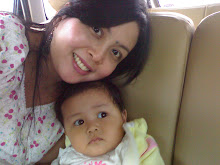Milk (breast or formula) is the most important food for young babies and provides all the calories and essential nutrients for healthy growth until 6 months of age.
1. Decrease in milk consumption (breast or formula)
Milk is more easily digested than solids. Because solid foods provide a sensation of fullness, this can interfere with the amount of milk (breast or formula) your baby will drink and she may not get as much milk as she needs for healthy growth.
Large amounts of solid foods can affect the nutritional balance of her diet. Starting solids too soon could potentially affect her overall weight gain, because solids will not satisfy her energy and growth needs in the same way that milk can.
Early introduction of solids can interfere with successful breast feeding! Because she feels full from solids, she's likely to drink less breast milk. As a result your breasts will make less milk. If then, enough breast milk is unavailable to her to satisfy her it will be tempting to give her even more solids to fill her, which in turn may mean she takes less breast milk and so on.
2. Increased risk of allergies
Because a baby's immune system is not fully developed, studies suggest the younger a child is exposed to a food the greater the potential risk of an allergic reaction to that food. It's difficult to predict which children are at risk. Certainly, children with a family history of allergies are at greater risk, but even those without a family history can also develop an allergy.
It's estimated somewhere between 8 - 10% of children are affected by either one or multiple food allergies. The majority of these children will outgrow their food allergy as their digestive and immune system mature, but for some it can become a life long condition and in rare situations it can be a life threatening condition.
3. Increased risk of diabetes
A recent study published in the Journal of the American Medical Association found that cereals introduced into the diets of babies before the age of 4 months or after the age of 7 months increase the risk of insulin-dependent diabetes in susceptible children.
4. Stomach and bowel discomfort
Babies less than 4 months of age have immature digestive systems, where their little tummies lack the necessary enzymes to adequately digest solid foods. Early exposure to solid food can result in stomach ache, gas, constipation or diarrhea.
Very young babies often lack the ability to recognize when they've had enough and this can potentially lead to over feeding, tummy distention and spitting up.
5. Increases work load of kidneys
A child's internal organs are growing and maturing even after birth. Solid foods make extra work for your baby's kidneys.
6. Risk of choking
No doubt you have experienced food going down the "wrong tube". This can happen to even experienced eaters. For a baby getting the food into the right tube can be a real challenge. Up until around the age of 4 months babies have an extrusion (tongue thrust) reflex that assists them with breast feeding. This reflex disappears around the age of 4 months. For some it's still present for a little longer.
While a baby still has the extrusion reflex, she lacks the coordination to move semi solid foods safely to the back of her throat before swallowing. This lack of coordination increases the risk of choking. Early choking experiences can make babies tense when faced with a spoonful of food. This tension can make the process of accepting food more difficult later on.

No comments:
Post a Comment